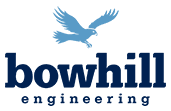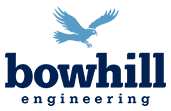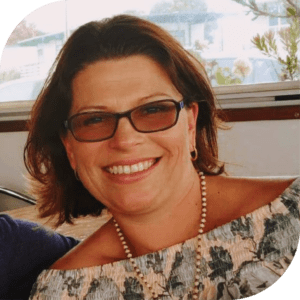Our CFO Jodie was recently featured on the Get On Board Australia Podcast where she shared what motivates her to be involved at the board level, the value she gains from that experience, how she overcame her biggest boardroom challenge, and distills advice for aspiring and new board members from her many years in the boardroom. There is also discussion around how Jodie navigates the unique challenges of rural and regional-based boards. Read along or listen to the podcast here!
What was your pathway to the boardroom / how did you get your board role(s)?
Unconventional – not intended – I started back in high school, I thought everyone volunteered, that’s how I was brought up ~ to give back to your community.
Over this years, this transitioned, starting with traditional roles; school council, netball club, local progress association, our business & then the Regional Development Board.
I was quite surprised that I was tapped on the shoulder for the RDAMR – the existing chair had been there for 11 years and was also a local Mayor – but over the course of the next few weeks, I had 3 other people approach me about the role (after checking that they weren’t conspiring together) I thought I’d look at the application (and if I could answer the questions relatively easy, then I may as well give it a crack.
What do you see as the essential skill(s) of great board members?
This is where many people (particular women) feel they aren’t “qualified” enough
What makes a great board member, is the diversity of backgrounds and skills they bring with them, whereas some members may have technical or industry experience. It is important to remember that grassroots skills are important too, being relatable.
Values alignment, personal style & leadership skills all are important
Skills matrix – fill the gaps
Being brave to ask the “dumb questions” only to find out lots of others were thinking the same, but not game enough to ask
Challenging the status quo – if you always do what you always did you will always get what you always got
Honestly, there are times when I feel completely inadequate and overwhelmed, wishing I had better networking skills or knew more about key issues within our region – but I’m learning that I can call on the skills of other board members and staff where I lack them
We put too much pressure on ourselves to be perfect, when all we really need to be is “authentic”
What the region needs from me as chair, is a rational, clear voice of reason – someone who listens, but someone who is also keen to deliver.
What does the future of the boardroom look like?
Covid has certainly changed what’s acceptable. Online meetings are now more widely recognised and accepted, with some boards planning every 2nd or 3rd meeting remotely only. We often have our IT issues, especially when working in the regions, only last week a chaired a meeting where my internet dropped out 5 times – very frustrating, but people are developing tolerance and understanding that we are all doing & trying our best. Criteria of Governance, Risk Management, Financial Management & Strategy Development will always be key. More open to education/knowledge pieces with guest speakers and thought alchemists – global economic updates, planning for disruption, technology advances
How do you see [your professional expertise] benefitting the organisation in the boardroom?
I’m a generalist, having started at the bottom in our own family business, I have worked in all parts of the business (except operations) – finance, HR, it, marketing, strategy, leadership, governance, the compliance you name it. Don’t pretend to be an expert in anything, but do feel that I’ve personally witnessed the struggles that growing small businesses experience (namely cash flow and human resources issues). Understanding that whilst I may not have the answers, I’m great at research and finding the right people to help, I don’t give up easily and I’ve been told I’m extremely determined. I used to be intimidated by the lawyer or accountant in the room as they were the experts in their chosen fields, however, I’ve realised that all small businesses’ still have the grassroots administration functions required, and many experts (or tradies) aren’t good at the actual running of a business, someone else may have the ideas & creativity, but I have the experience with implementation and making it happen. I started my role at Boweng under difficult circumstances, just having lost Simon, my brother in law, who was the entrepreneurial genius of the business, our first child was only 6 months and I decided that I needed to quit my job at the local high school and come help the family business. My first 10+ years were based upon survival. This taught me that I never want to be in that position again, not knowing the passwords to log into MYOB – I have built our business on the basis of resilience, chocking the wheel as I go, systems and procedures are paramount.
So whilst my skills may not be glossy & exciting, they apply to all businesses so I can be supportive and relate to businesses from all shapes and sizes.
What advice would you give to new and aspiring board members?
Back yourself, you need to start somewhere, we don’t have enough courageous people out supporting boards (which are quite often volunteer roles that may only attract a small honorarium), whilst you may not be financially rewarded for your efforts, you are certainly rewarded in other ways
I am personally excited by the new board members and the intrigue they bring to the role, being keen to know everything, and asking lots of questions. FRESH EYES I call it. Too many times we get complacent, and a board becomes about Compliance & ticking the box, rather than deep and meaningful conversations about what really matters
Be you, be respectful, be inquisitive, do your homework
What has been the biggest challenge in your board career to date, and how did you overcome it?
-
- Boweng – The transition from 1st generation to 2nd generation
- Always a difficult and sensitive process
- Giving value & respect to the outgoing directors
- Whilst keeping the next generation engaged & driven
- We created our Advisory Council – bringing in 3-4 external Board members to provide independent advice (using our Skills Matrix to ensure diversity of skills)
Article by
Jodie Hawkes
Pod Cast by Lisa Cook – Founder and Managing Director Get On Board Australia





